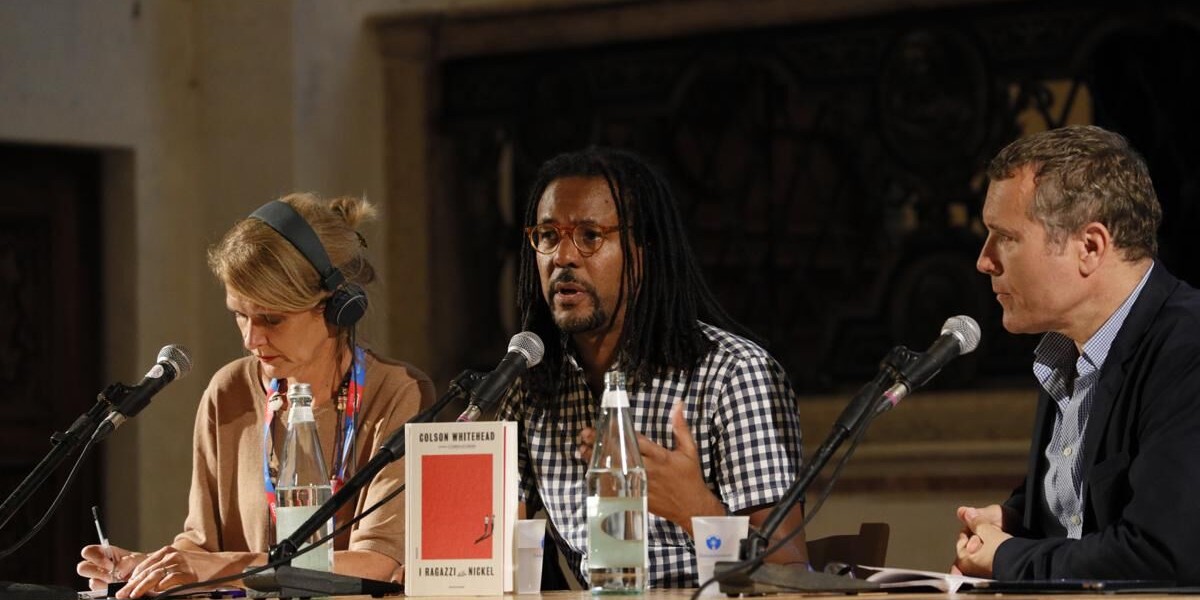
Colson Whitehead on literature as social commentary
Seated on a pedestal in the Basilica of the Palazzo Ducale complex, Colson Whitehead commented that he usually spends Friday nights a little differently. Tonight, in conversation with Italian presenter Stas’ Gawronski, he talked to a packed house about the process of writing his latest novel The Nickel Boys, and its context in the America of today and the past.
The reform school where the two boys at the heart of the novel meet is based on an actual place, where real atrocities were committed. However, the two protagonists represent the extremes of the USA as experienced by people of colour: Elwood is a straight-A student caught in the wrong place at the wrong time; Turner is an orphan and a delinquent whose first priority is survival. Whitehead is a novelist, not an essayist, he reminded us, so it was natural to express these ideas through invented characters. The Nickel Boys is set in the pivotal years between the start of the civil rights struggle and the Voting Rights Act. “I look back on that generation with reverence,” the author said.
Whitehead explained how he plans carefully, with voice and structure determined by the requirements of the story. Whereas The Underground Railroad required distance and editorialising, The Nickel Boys needed a narrative voice which was much closer to the boys, almost a third member of their gang. He wasn’t prepared for the emotional impact that writing the book would have on him. “How do you stop yourself being poisoned by that?” Gawronski asked. “It has never occurred to me to hate someone I’ve never met,” Whitehead replied.
In the final part of The Nickel Boys, Elwood has left the reform school and is attempting to build a normal life. Whitehead was interested in the process of coming back from trauma. He talked about the small choices we make about how to live, which add up over the years to become heroic acts. After such an experience, he said, some people find the capacity to love themselves and others. Some don’t.



